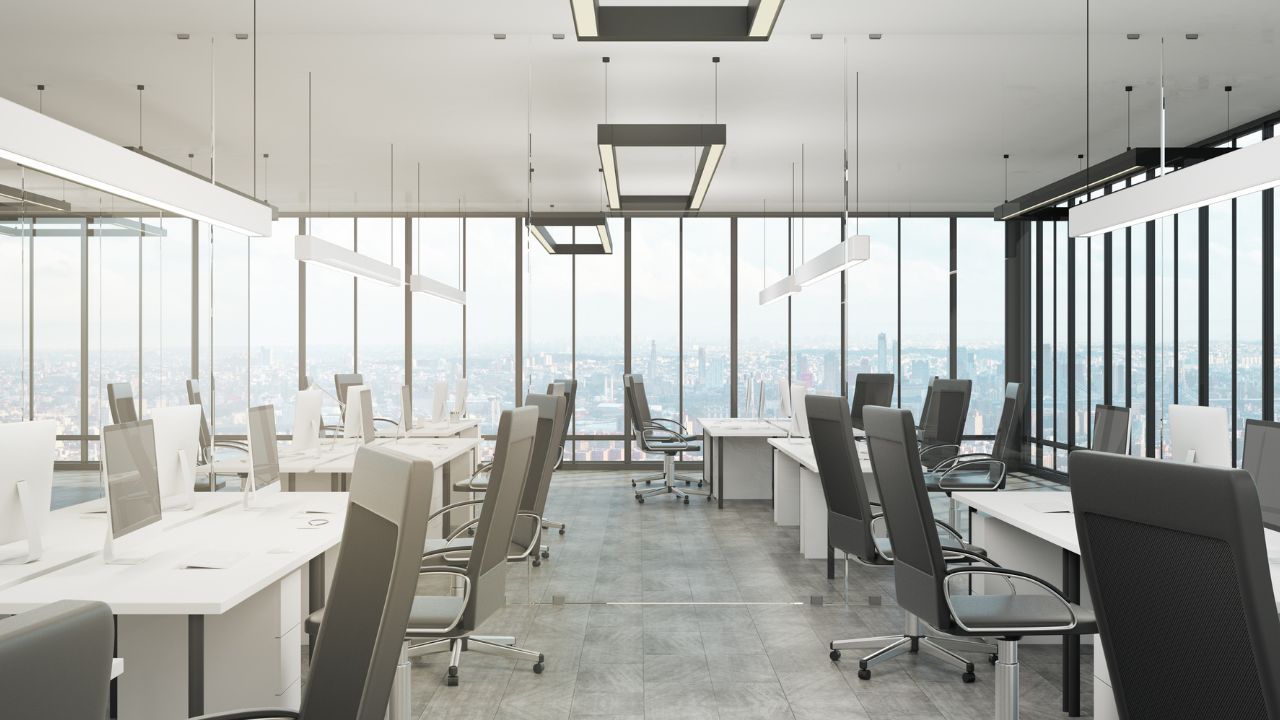Hybrid work drives ‘flex’ office boom
Demand for flexible office space in the country is hitting unprecedented highs, especially in the Makati central business district, benefiting from the institutionalization of hybrid work in the postpandemic world.
This is according to Michael McCullough, cofounder of leading flexible space provider KMC Solutions, which reported a ‘V-shaped’ rebound from 2021, when it suffered the worst impact of the COVID-19 lockdowns.
“Now we’re blessed to have the wind on our back. Demand for flex space has never been better. We’ve never had more leads. We’ve never had more demand from corporate occupiers, because every company needs flexibility right now, particularly with these hybrid work arrangements,” McCullough said in a recent interview with Inquirer.
He said the ‘central headquarters’ model no longer works for everyone as many employees have relocated to residences away from Metro Manila since the pandemic erupted four years ago.
Unlike traditional offices that require long-term commitment, flexible workspace can be rented daily, weekly or monthly depending on the requirements of a company. A startup, for instance, can occupy as few work stations as needed.
“Many people want to get back to an office but they don’t want to be there full time. They want to be there two, three, four days a week with their teammates, with their colleagues and our spaces make it very convenient for companies to sign up and immediately start collaborating with their staff,” he said.
Postpandemic expansion
Before the pandemic, KMC Solutions operated 24 sites. It has since then shut down small hubs and opened bigger ones. To date, it operates 102,000 square meters (sq m) of flexible office space across 27 locations, offering a total of 20,000 work stations.
The occupancy rate is now running at around 91 percent, which McCullough said was “very healthy.” Foot traffic is around 40 to 60 percent as many workers no longer need to show up every day.
Compared with other flexible working space providers elsewhere in the world, he said Asia was doing better and generally reporting greater space takeup.
“We typically have smaller homes. We don’t have large private offices like you see in the West. We live in small condos in more urban and denser environments,” he said.
KMC Solutions, for its part, is expanding in Alabang through a recently announced joint venture with the Filinvest group and likewise doubling its footprint in Clark, Pampanga. Its new hub in Quezon City, located at SM North Edsa, enjoys 100-percent occupancy and is likewise up for expansion.
In Makati, its newest and biggest hub is at One Ayala, taking up 11,000 sq m. During the pandemic, it opened a hub at its own building, KMC Armstrong Corporate Center, offering 8,000 sq m of space.
“Makati is still one of our hottest markets. Makati is in a comeback. Despite what the office reports say, it does have higher occupancy rates for traditional office space, and most of the flexible space providers are doing exceedingly well there,” he said.
KMC Solutions serves companies as big as multinational firms like Johnson & Johnson, cybersecurity firms, cruise operator Royal Caribbean but likewise opens its doors to small businesses, including startups. As part of its corporate social responsibility initiatives, it provides free office space to some startups.
“It takes a lot of crumbs to make a cookie. So really our business model is putting a lot of crumbs together to take that whole floor. You’d be surprised,” he said.
Meanwhile, KMC has become the fifth Philippine company to attain ‘B Corp’ certification from US-based nonprofit B Lab, a seal of “dedication to meeting rigorous standards of social and environmental performance, accountability and transparency.”“It reflects our deep-seated belief that businesses should be a force for good …,” McCullough said. INQ
